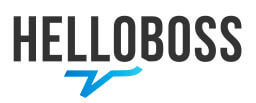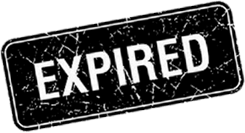
Objectives of this PMP Preparation training
Discover the philosophy of PMI®
Have a pragmatic vision of the knowledge necessary to obtain certification
Go back to the essential points of project management carried out according to the rules of the art
Prepare intensively for passing the PMP® certification
Program of this training PMP preparation
Part 1: The fundamentals of project management
The definition of a project, a program, a project portfolio
The framework of project management
Functional, matrix or dedicated project organizations
Review of the fundamentals of project management
The PMI® methodology
The PMBOK® Guide
The 10 disciplines of methodology
The 5 process groups
The 47 processes
The life cycle of a project
Project stakeholders
The socio-cultural and environmental context
Corporate environmental factors
2nd part: The first 3 disciplines: Integration, Content, Deadlines
Project integration management
Develop the project charter
Develop the project management plan
Direct and manage the execution of the project
Monitor and control the work of the project
Integrated control of changes
Close the project or phase
Techniques: project selection, profitability calculations
Historical information and the project knowledge base
Project content management
Plan content management
Collect requirements
Define the content
Create the Project Breakdown Structure
Validate the content
Master the content
Project deadlines management
Plan schedule management
Define activities
Organize activities in sequence
Estimate the resources required for activities
Estimate the duration of activities
Develop the timeline
Control the schedule
Techniques: network diagrams, Gantt, CPM, arrow diagram
Planning techniques
3rd part: The following 3 disciplines: Costs, Quality, Human Resources
Project cost management
Plan cost management
Estimate costs
Determine the budget
Master the costs
Planning techniques
S curves
Earned value technique
Project quality management
Plan quality management
Implement quality assurance
Implement quality control
Quality history
Factors and costs of quality
Control chart, Pareto chart, Ishikawa and other quality tools
Human resources management of the project
Plan human resources management
Assemble the project team
Develop the project team
Lead the project team
Organization representation (RACI matrix, roles and responsibilities matrix)
Motivation
Conflict management
4th part: The last 4 disciplines: Communication, Risks, Procurement, Stakeholders
Project Communication Management
Plan communications management
Manage communications
Mastering communications
Project risk management
Plan risk management
Identify the risks
Implement qualitative risk analysis
Implement quantitative risk analysis
Planning risk responses
Monitor and control risks
The expected monetary value technique
Monte-Carlo analysis
The decision tree
Project supply management
Plan supply management
Procurement
Manage supplies
Close supplies
Types of contracts and management of calls for tenders
Choice of suppliers
Contracts (administration, clauses, closure)
Just-in-time
Logistic
Management of project stakeholders
Identify the stakeholders
Plan stakeholder management
Manage stakeholder engagement
Control stakeholder engagement
Part 5: Summary and certification
Synthesis
Summary of PMI deliverables
The code of ethics and professional conduct
Tips for taking the exam
The certification
The certification
The eligibility file
The PDU's system and maintenance of certification
White tests
Tests carried out on the fly: more than 100 exam questions
Where does it take place?
Elgon
6
Rue d'Arlon Windhof Luxembourg
You could like it :

find out about all the networking events and trainings tailored for you!
find out about all the networking events and trainings tailored for you!






